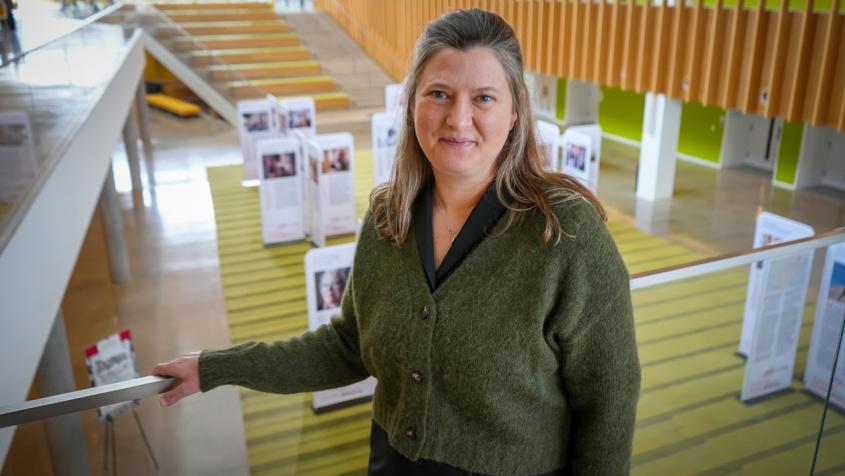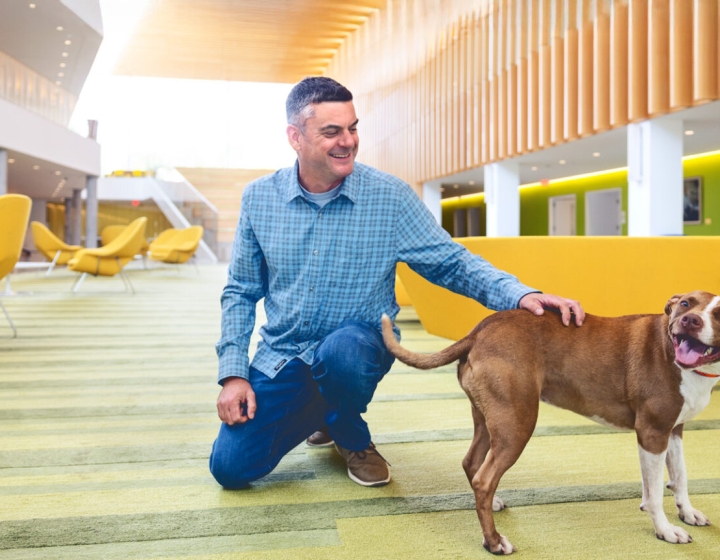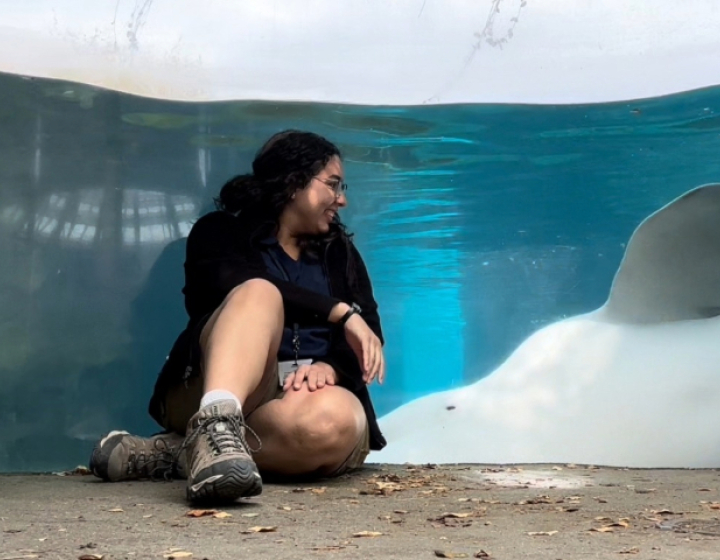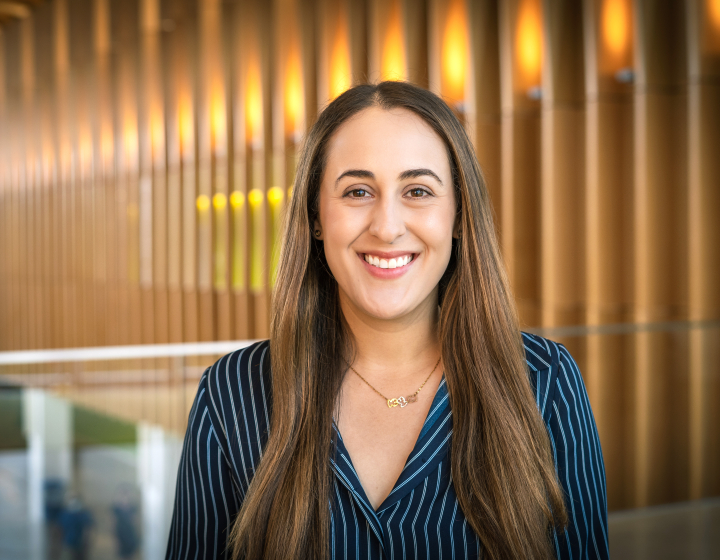New faculty profile: Dr. Kate Anderson
The Cornell University College of Veterinary Medicine (CVM) recently welcomed many new faculty members to our academic departments and hospitals, each one bringing a unique set of skills and experience that enriches our college every day. In this Q&A series, you'll get to know their interests, expertise and more.
Kate Anderson, D.V.M. '08, assistant clinical professor, Department of Clinical Sciences, Duffield Institute for Animal Behavior
What has been your path leading to Cornell?
I graduated from CVM in 2008 and have worked in both private practice and industry with a variety of species, including dogs, cats, ruminants and horses.
While I always had a wide range of interests, I realized I specifically wanted to do more to alleviate the suffering of animals with behavioral disorders and learn more about how to apply knowledge of animal behavior to all aspects of veterinary medicine. In 2017, I started a residency under the mentorship of Dr. Katherine Houpt, the James Law Professor Emeritus of Behavior Medicine in the Department of Clinical Sciences.
What drew you to CVM?
The opportunities presented by the creation of the Duffield Institute for Animal Behavior were incredibly compelling. I very much wanted the chance to do more research and teach.
What is your clinical or scientific area of expertise?
I primarily focus on clinical veterinary behavioral medicine.
What drew you into this area? Any specific experiences, mentors or influences that helped guide you?
I moved to Ithaca in 2004 to start veterinary school and have remained in the Finger Lakes area ever since. As mentioned above, Katherine Houpt has been an incredible mentor to me both when I was a veterinary student and later as a resident.
What past professional work are you most proud of and why?
I have always enjoyed all aspects of clinical practice, in particular my time as a mixed animal veterinarian. I have done everything from dairy production medicine to emergency work and general companion animal practice. I especially enjoy building relationships with clients and colleagues.
What about your clinical work, research or teaching innovations are you most excited for or proud of, and why?
I am very excited to continue to build Cornell’s clinical behavioral medicine service. It is an area that has been underserved for some time and provides care that is urgently needed. Unfortunately, there are less than 100 veterinarians boarded by the American College of Veterinary Behaviorists worldwide.
What impacts or applications do you hope to see your work have on the world or on human, animal or planetary health?
I primarily want to continue to support the human-animal bond and improve the welfare of animals under our care. More research is desperately needed in how to prevent, diagnose and treat problem behaviors. The development of unwanted behavior, whether normal or pathological, can lead to devastating outcomes for many animals — including relinquishment or euthanasia.
What clinical or scientific questions are you looking to answer next, or areas you plan to explore?
I am primarily interested in further research in clinical behavioral medicine, as well as ways to safely provide medical care to all patients without causing excessive fear or contributing to the development of healthcare aversions.
What’s something most people don’t know about you?
I went to Tisch School of the Arts at New York University and studied theater for most of college. It was only after graduating and travelling for some time that I decided to return to school for veterinary medicine.
What’s the best part of being a clinician or scientist?
The chance to learn new things and help animals and their caretakers.
What’s the most challenging part?
The fact that there’s still so much we don’t know and most behavioral problems cannot be cured.
What are the benefits of working at CVM? At Cornell?
The resources and community they offer, as well as the chance to help the next generation of veterinarians learn more about behavior.






